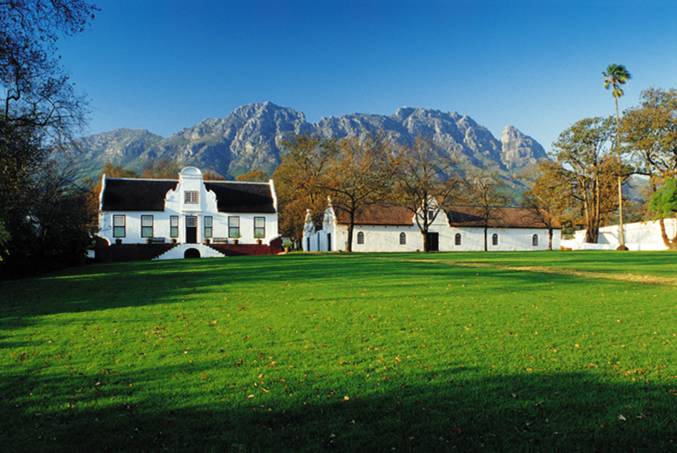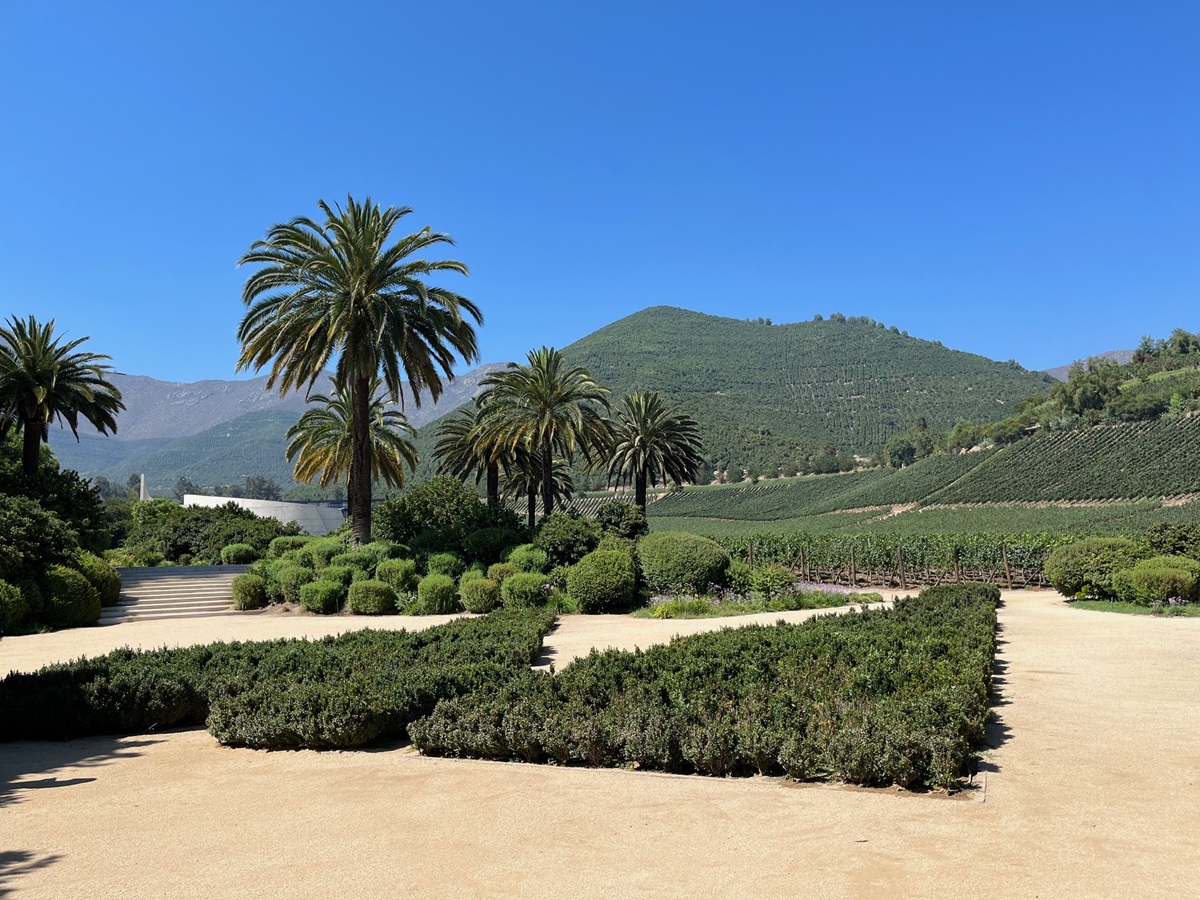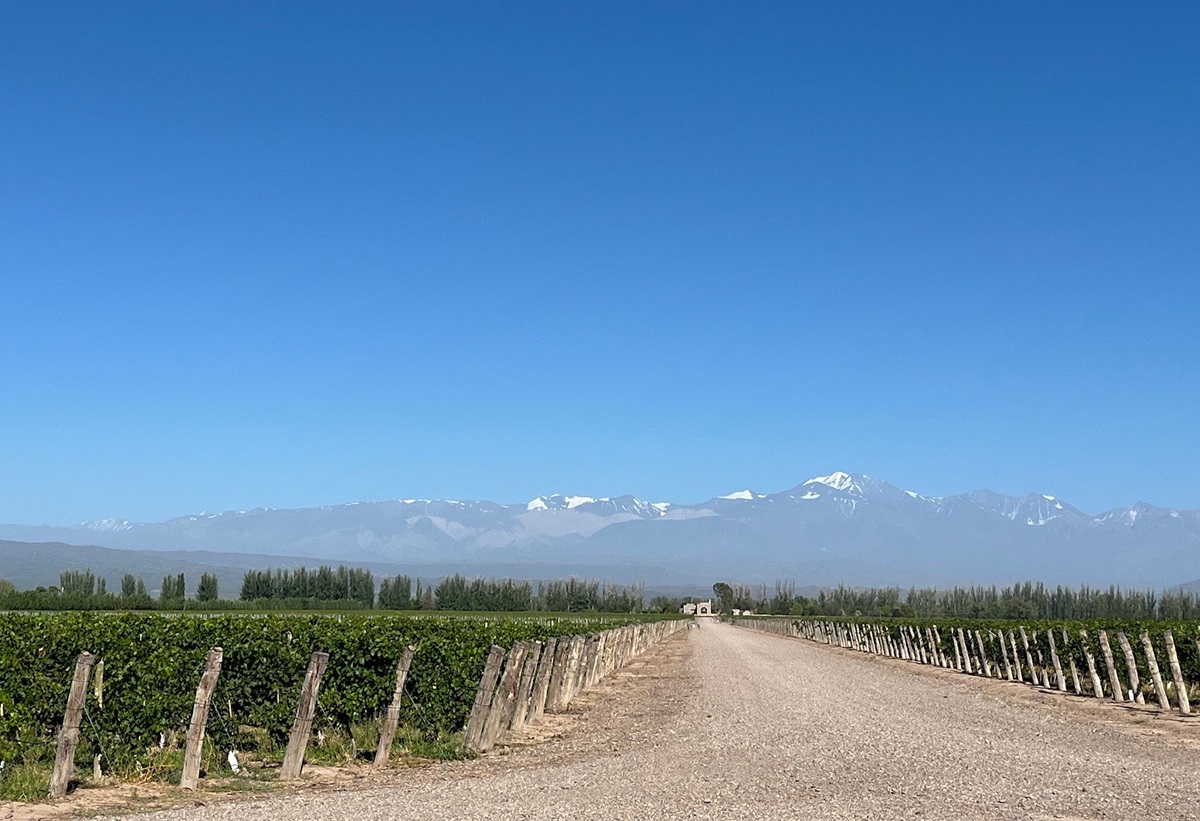ENGLISH WINE’S RISING STARS

By Rose Murray Brown MW Published in The Scotsman 20 June 2020
To celebrate English Wine Week (20-28 June), here is my pick of the bunch of up-and-coming young rising stars in England’s burgeoning wine industry:
Hampshire: BLACK CHALK
www.blackchalkwine.co.uk
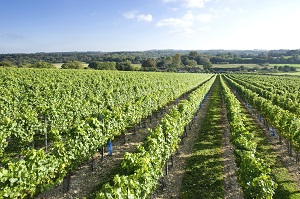 Jacob Leadley (pictured above) is one of England’s most talented winemakers. He first made his name at Hattingley Valley, but his new venture in the Test Valley could be one of the most exciting this year, judging from the quality of fizz produced since launching in 2018. With a new winery for 2020 harvest, Leadley has just taken on three vineyards: Hide, Rivers, The Levels and The Circle across 12 hectares; names we might well hear more of as he plans to experiment with single vineyards and specific clones to increase quality.
Jacob Leadley (pictured above) is one of England’s most talented winemakers. He first made his name at Hattingley Valley, but his new venture in the Test Valley could be one of the most exciting this year, judging from the quality of fizz produced since launching in 2018. With a new winery for 2020 harvest, Leadley has just taken on three vineyards: Hide, Rivers, The Levels and The Circle across 12 hectares; names we might well hear more of as he plans to experiment with single vineyards and specific clones to increase quality.
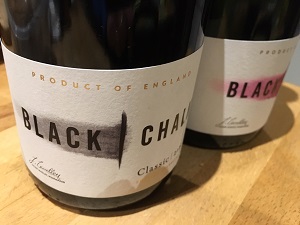 “Our aim is to showcase what Hampshire’s chalk-lands can achieve in small batch precision winemaking”, says Leadley. “They are not Champagne look-alikes, but highlight the delicate fruit profiles and fantastic purity from the chalk”, he says. Black Chalk’s name derives from material used by old masters to sketch initial ideas on canvas – Leadley says this idea is reflected in the wines from selected locally-grown grapes, fastidiously blended and aged.
“Our aim is to showcase what Hampshire’s chalk-lands can achieve in small batch precision winemaking”, says Leadley. “They are not Champagne look-alikes, but highlight the delicate fruit profiles and fantastic purity from the chalk”, he says. Black Chalk’s name derives from material used by old masters to sketch initial ideas on canvas – Leadley says this idea is reflected in the wines from selected locally-grown grapes, fastidiously blended and aged.
Best buy: BLACK CHALK CLASSIC 2016 (£35 Cornelius Wine; Vino Wines; Craig Millar; Luvians; www.blackchalkwine.co.uk) Elegant creamy fizz with floral appley aroma; unusually focuses on Pinot Meunier alongside Chardonnay and Pinot Noir
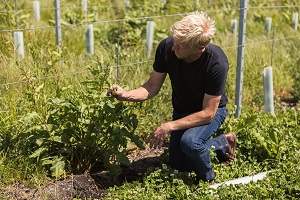 East Sussex: TILLINGHAM
East Sussex: TILLINGHAM
www.tillingham.com
When I first saw what Ben Walgate was installing in his winery on an old 70-acre farm near Peasmarsh, I thought he was nuts. Fascinated – maybe obsessed – by ‘natural’ wines, he imported 12 new Georgian Qvevri (the famous earthenware amphorae) and sunk them up to their necks in English soil.
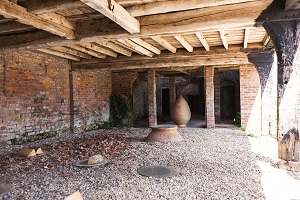 Walgate has planted 40,000 vines since 2018, currently buying in grapes as he waits for vines to mature. He focuses on early-ripening semi-aromatic modern crossings, like Ortega, Bacchus and Schonburger, which he feels are suited to the English climate. All his new vines are grown on a mix of Wealden clay, ironstone, greensand and chalk on his mixed farm surrounded by C13 ancient woodlan, where he focuses on ‘an amalgamation of re-generative practices including biodynamic, permaculture and agroforestry’.
Walgate has planted 40,000 vines since 2018, currently buying in grapes as he waits for vines to mature. He focuses on early-ripening semi-aromatic modern crossings, like Ortega, Bacchus and Schonburger, which he feels are suited to the English climate. All his new vines are grown on a mix of Wealden clay, ironstone, greensand and chalk on his mixed farm surrounded by C13 ancient woodlan, where he focuses on ‘an amalgamation of re-generative practices including biodynamic, permaculture and agroforestry’.
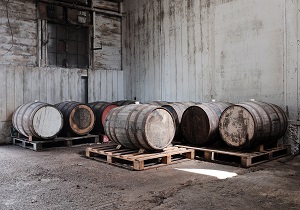 In the winery Walgate uses a mix of qvevri, stainless steel, barrels and foudres with skin fermentation and foot treading practised widely. I was initially sceptical, but fascinated by his ‘orange’ wine, but he is proving that low intervention natural wine – using zero sulphur – can be made on our shores. Join his mailing list to be the first to hear about his ‘progressive’ wines & news of his events and farm restaurant with rooms.
In the winery Walgate uses a mix of qvevri, stainless steel, barrels and foudres with skin fermentation and foot treading practised widely. I was initially sceptical, but fascinated by his ‘orange’ wine, but he is proving that low intervention natural wine – using zero sulphur – can be made on our shores. Join his mailing list to be the first to hear about his ‘progressive’ wines & news of his events and farm restaurant with rooms.
Best buy: TILLINGHAM ENDGRAIN 2018 (10.5%) (£25 www.tillingham.com; www.lescaves.co.uk) Brilliant bright fruits, savoury and spice – blend of mainly Ortega with Chardonnay, Schonburger and Bacchus.
Buckinghamshire: HARROW & HOPE
www.harrowandhope.com
 Winemaker Henry Laithwaite, son of retailer Tony Laithwaite, made wine in France and Australia, before returning home to start his own vineyard. He reckons his 15 hectares on rolling hills behind Marlow is what sets his winery apart, as the first vineyard and winery to focus exclusively on sparkling wines grown on hard flint, chalk and gravel soils of Thames Gravel Terrace, where hot days and cool nights help ripen grapes and retain acidity. “Harrowing the soil can be risky here with broken harrows and shredded tyres, so every day you just hope you don’t break anything”, says Laithwaite – hence the name of the winery.
Winemaker Henry Laithwaite, son of retailer Tony Laithwaite, made wine in France and Australia, before returning home to start his own vineyard. He reckons his 15 hectares on rolling hills behind Marlow is what sets his winery apart, as the first vineyard and winery to focus exclusively on sparkling wines grown on hard flint, chalk and gravel soils of Thames Gravel Terrace, where hot days and cool nights help ripen grapes and retain acidity. “Harrowing the soil can be risky here with broken harrows and shredded tyres, so every day you just hope you don’t break anything”, says Laithwaite – hence the name of the winery.
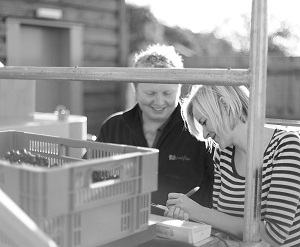 Seven years on from planting his first vineyard, he has turned fully organic, hoping for conversion next year: “I am hoping organic viticulture will become more popular in England as more disease bio-control products come onto the market”, says Laithwaite.
Seven years on from planting his first vineyard, he has turned fully organic, hoping for conversion next year: “I am hoping organic viticulture will become more popular in England as more disease bio-control products come onto the market”, says Laithwaite.
Stylistically his wines are rich, textural and savoury, which he prefers to stereotypical floral hedgerow notes of many English sparkling wines. He makes four fizz, using oak for reserve wine storage to add complexity, focusing on Champagne classics: Chardonnay, Pinot Noir and Pinot Meunier.
Best buy: HARROW & HOPE BRUT RESERVE NV £28 www.harrowandhope.com; www.laithwaites.co.uk) Based on great 2015 vintage; yeasty rich toasty savoury depth with ripe pure fruits.
London: BLACKBOOK
www.blackbookwinery.com
 American Sergio Verrillo is one of the leading lights in London’s urban winery scene (his wife Lyndsey is a Scot). An old Network Rail arch in Battersea might sound like an unusual location for a new winery, but Verrillo believes it is the perfect place near an engaged consumer market. His winery in also unusual as he puts more emphasis on still wines, rather than sparkling.
American Sergio Verrillo is one of the leading lights in London’s urban winery scene (his wife Lyndsey is a Scot). An old Network Rail arch in Battersea might sound like an unusual location for a new winery, but Verrillo believes it is the perfect place near an engaged consumer market. His winery in also unusual as he puts more emphasis on still wines, rather than sparkling.
He sources grapes from suppliers in Essex for Pinot Noir and Chardonnay, South Oxfordshire for Seyval Blanc and from East Anglia he buys Bacchus – and features grower names on each label.
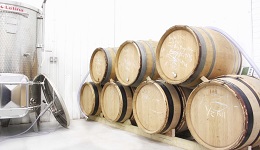 Whilst his passion is Chardonnay and Pinot Noir, he also works with Ortega, Auxerrois and Sauvignon Blanc with plans to make Cabernet Noir (Swiss hybrid of Cabernet Sauvignon) and new Blanc de Blancs sparkling with grapes from Greyfriars Vineyard in Surrey. His wines are popular – his Blackbook Clayhill Vineyard Chardonnay sold out at The Wine Society within days.
Whilst his passion is Chardonnay and Pinot Noir, he also works with Ortega, Auxerrois and Sauvignon Blanc with plans to make Cabernet Noir (Swiss hybrid of Cabernet Sauvignon) and new Blanc de Blancs sparkling with grapes from Greyfriars Vineyard in Surrey. His wines are popular – his Blackbook Clayhill Vineyard Chardonnay sold out at The Wine Society within days.
Best buy: BLACKBOOK TAMESIS FORTY HALL VINEYARD 2018 (£19.50 St Andrews Wine; Smith & Gertrude; Cork & Cask; Valhalla’s Goat; www.blackbookwinery.com) Attractive floral elderflower notes, touch of sweetness, juicy fresh summer wine.
Kent/East Sussex: DAVENPORT
www.davenportvineyards.co.uk
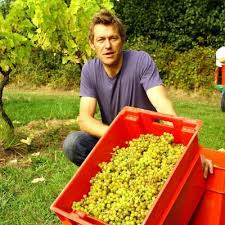 Roseworthy-trained winemaker Will Davenport first started growing vines in Kent in the early 1990s – and was one of the first to gain organic certification in 2000. His winery is at Rotherfield in Sussex, but he still sources grapes from Horsmonden vineyards in Kent from no less than 9 varieties spread across five parcels.
Roseworthy-trained winemaker Will Davenport first started growing vines in Kent in the early 1990s – and was one of the first to gain organic certification in 2000. His winery is at Rotherfield in Sussex, but he still sources grapes from Horsmonden vineyards in Kent from no less than 9 varieties spread across five parcels.
He makes still wines from Chardonnay and Pinot Noir – but his best wine by far is his Petillant Naturel – which Davenport describes as “like a bottle of our vineyard as we have done nothing to it.
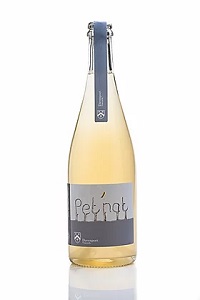 We just press organic grapes and bottle at the right moment – but it is technically challenging as grapes must have a perfect acid/sugar balance and bottling is mid-harvest so it is tricky to fit it in”.
We just press organic grapes and bottle at the right moment – but it is technically challenging as grapes must have a perfect acid/sugar balance and bottling is mid-harvest so it is tricky to fit it in”.
Best buy: DAVENPORT ‘PET NAT’ 2019 (£21 www.davenportvineyards.co.uk) Apple, elderflower, rich mature cider, melon, floaty melting mousse; clever blend of Pinot Meunier, Pinot Noir, Auxerrois, Bacchus and Faber.
Stay home & join Rose’s Virtual Wine Tastings www.rosemurraybrown.com
wine tastings
The perfect gift for the wine enthusiast in the family. Rose does In-person tastings too.
cellar advice
Rose does cellar valuations for private clients, valuations for insurers & bespoke portfolio management.
Related stories
March 31, 2024
By Rose Murray Brown MW Published in The Scotsman 30 March 2024 On 2 February 1659, the first wine made from grapes grown in South Africa was crafted by the Governor of the Cape, Jan van Riebeeck. He had planted vines four years earlier in the Company’s Garden near Cape Town from cuttings imported from France. Van Riebeeck’s first
March 24, 2024
By Rose Murray Brown MW Published in The Scotsman 16 March 2024 Heatwaves and bushfires were very much on the agenda when I visited Chile last month as winemakers prepared for their 2024 harvest in blistering heat and drought, with a plume of smoke from the devastating fires lingering over coastal hills. Heat and drought are the greatest challenges
March 23, 2024
By Rose Murray Brown MW Published in The Scotsman 9 March 2024 I have two glasses of Malbec in my hands from the same high-altitude vineyard in Uco valley in Argentina. I am in the Catena Institute of Wine in Mendoza with winemaker Agustin Silva. He has asked me to taste the two wines, both from the 1500m high

